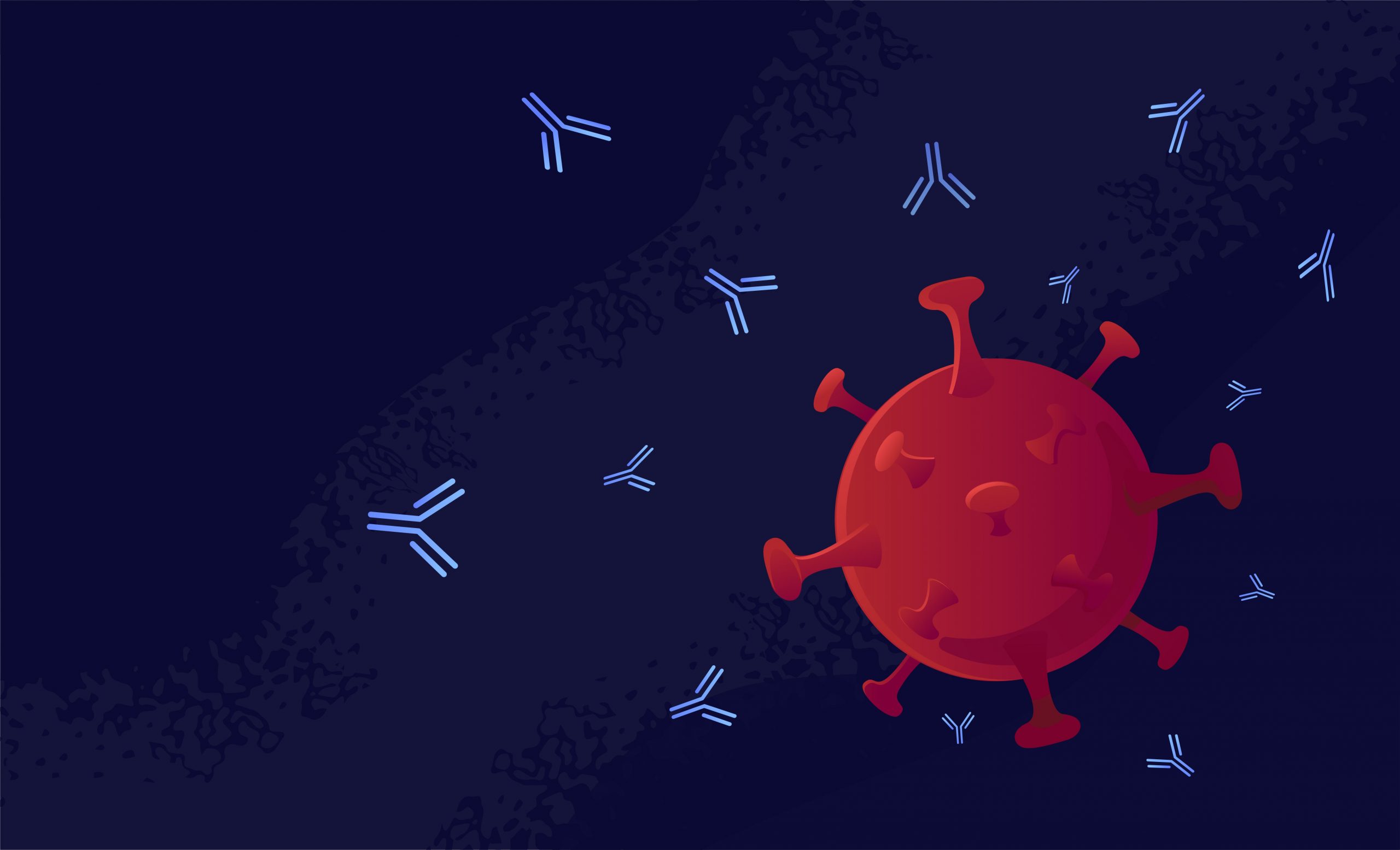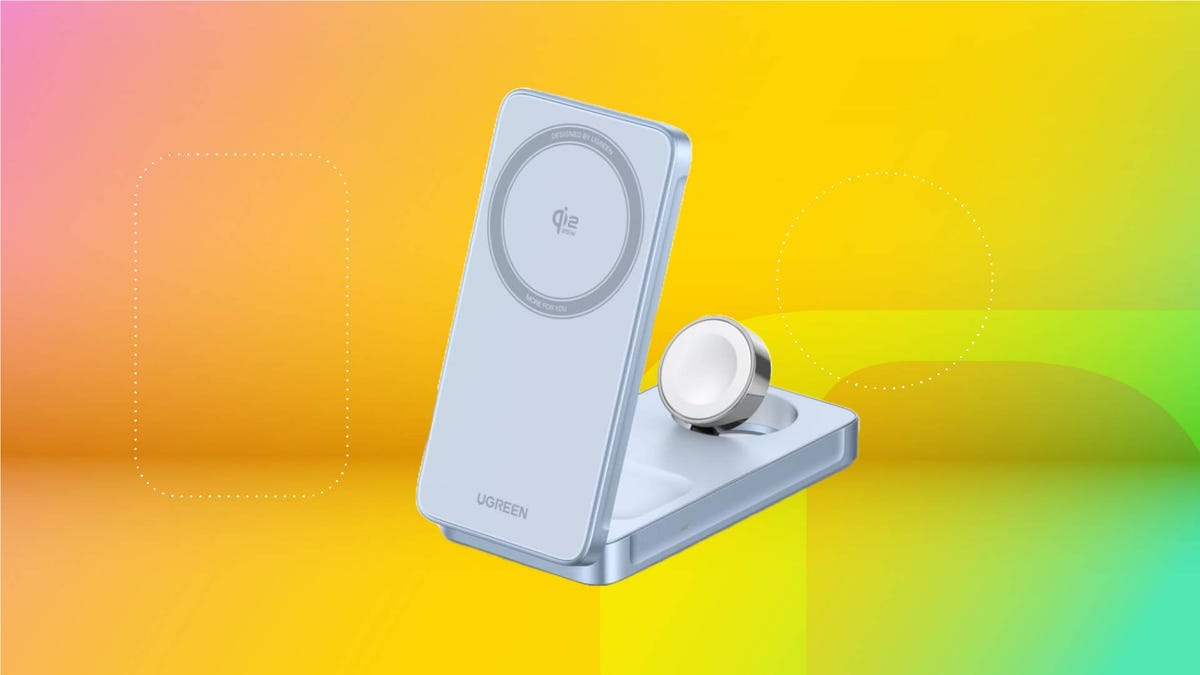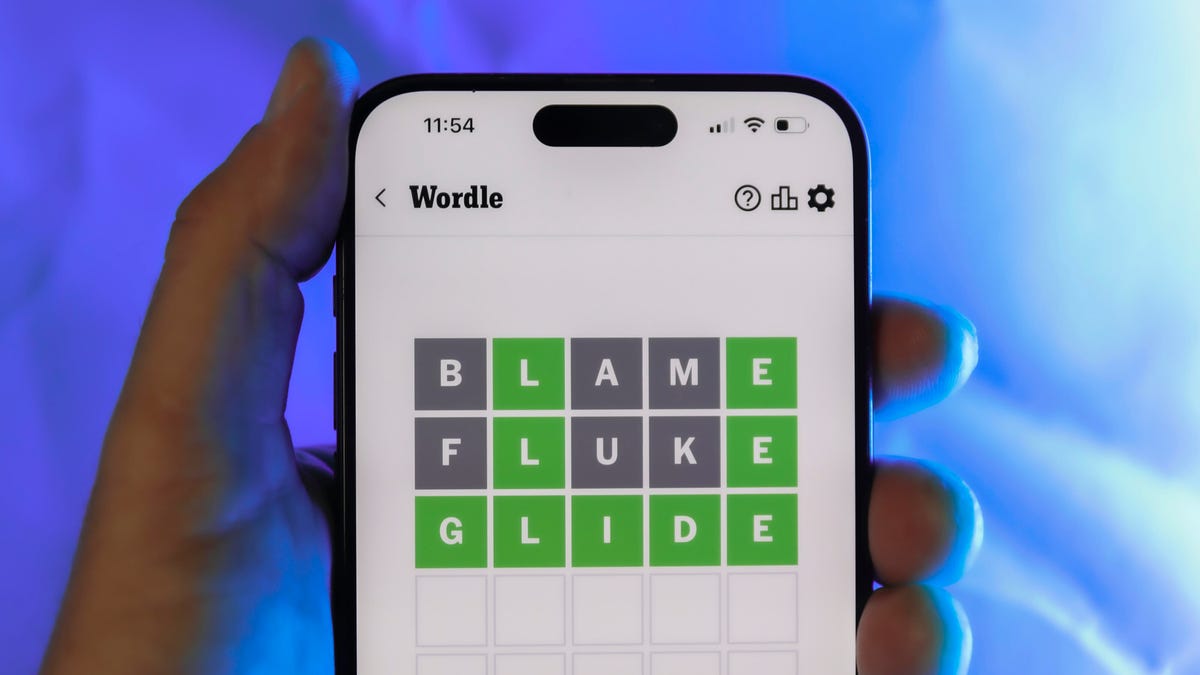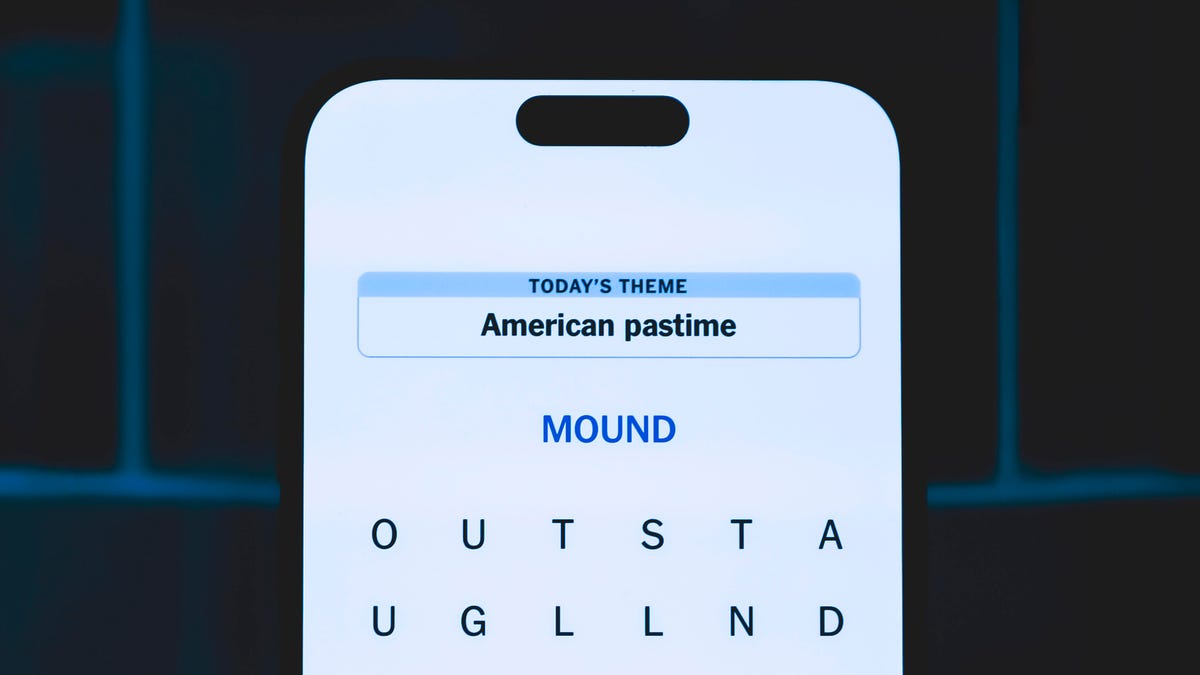Technologies
Regen-COV might work before COVID exposure, trial shows: What to know about monoclonal antibodies
Monoclonal antibodies can greatly reduce hospitalization rates in people most at risk of severe COVID-19.

Monoclonal antibody therapy for COVID-19 is available to people in the US for free who are at higher risk of severe disease in the first few days of their illness, or after they’ve been exposed to the coronavirus. The treatment — lab-made antibodies given to a person that help their immune system stop the infection from spreading — has proven to be a key tool for preventing the coronavirus from turning into severe illness. Preliminary research shows the treatment reduces risk for hospitalization or death by about 70%.
Now, early research is showing the treatment may benefit people much earlier on, before they’ve even been exposed to the coronavirus. Regeneron, one of the drug-makers of the antibody treatments, announced Monday that its drug was 81.6% effective in preventing COVID-19 in a trial period of two to eight months post-treatment. The drug in the study, which is called Regen-COV and was given to participants in a series of four injections, is the same drug as the one currently authorized for use on at-risk people who are in the early stages of COVID-19, and on some people who’ve been exposed to it.
Dr. Myron Cohen, who leads the monoclonal antibody efforts for the National Institutes of Health’s COVID Prevention Network, said in a news release Monday that the results from the drug-maker are «particularly important to those who do not respond to COVID-19 vaccines, including people who are immunocompromised.»
Regen-COV isn’t authorized yet for use in anyone who hasn’t been exposed to or is sick with COVID-19. A few monoclonal antibody therapies, including the one made by Regeneron, have emergency use authorization by the US Food and Drug Administration and should be accessible in doctors’ offices or even some state-run clinics, as seen in states such as Florida and Texas.
Importantly, monoclonal antibodies don’t replace the role of the COVID-19 vaccines in preventing hospitalization and death. According to data from August by the US Centers for Disease Control and Prevention, unvaccinated people were more than 11 times more likely to die from COVID-19 and about 6 times more likely to contract COVID-19 than fully vaccinated people.
A large number of Americans could be eligible for monoclonal antibody treatment if they test positive for COVID-19 (a smaller number would be eligible for the treatment without a positive test, and only a confirmed exposure). For example, everyone age 65 or older, people who are overweight, people with heart, liver, or kidney disease and many more would be eligible for the treatment in the early days of their symptoms.
Here’s what we know now about COVID-19 monoclonal antibodies.
What are monoclonal antibodies, and how do they work?
Monoclonal antibodies are lab-made antibodies that work by binding to bacteria, cancer cells or viruses the way natural antibodies do, stopping them from infecting more cells. The first monoclonal antibody therapy was approved more than 30 years ago and has been used for other illnesses, including the Ebola virus.
Monoclonal antibody treatments for COVID-19 are used before a person gets really sick, usually within 10 days of their first symptom, to prevent hospitalization. The treatment is only approved for people who are at risk of getting extremely sick — those who are age 65 or older and those who have «certain medical conditions,» per the FDA. The same treatment isn’t recommended for people who are already hospitalized with COVID-19.
Monoclonal antibody therapy is also authorized if an at-risk person is exposed to COVID-19, but the definition of «at-risk» in this instance, per the FDA, is a little narrower and reserved for people who are at risk because of a medical condition and unvaccinated or not fully protected by the COVID-19 vaccines because of an immunocompromising condition.
Read more: Pfizer says its COVID-19 antiviral pill reduces risk of serious illness
I tested positive. How do I know if I’m eligible?
If you come down with the coronavirus and are concerned about how the disease will affect you, contacting your doctor to learn your options and the best line of treatment for you is a good idea. But, in general, this specific treatment is reserved for people who are at risk for severe disease. Most people who are infected with COVID-19 will recover at home without medical help.
The people who test positive for COVID-19 and would be eligible or benefit from monoclonal antibody therapy may also be the same people who are eligible for COVID-19 vaccine boosters because of a medical condition. For those who are at risk of severe COVID-19 and would be eligible for monoclonal antibodies if they test positive (if they’re at least 12 years old and weigh at least 88 pounds) the FDA defines «at risk» under the EUA as:
- All people age 65 and older.
- People with obesity or those who are overweight (adults with a BMI of more than 25, and children age 12-17 who have a BMI at the 85th percentile or greater).
- Pregnant people.
- People with cancer.
- People with chronic kidney or lung disease.
- Individuals with cardiovascular disease or hypertension.
- People with diabetes.
- People with sickle cell disease.
- Those living with neurodevelopmental disorders.
- People who are immunocompromised or taking immunocompromising medication.
- Those who have a «medical-related technological dependence» (such as a tracheostomy or gastrostomy).
However, the FDA stressed in a fact sheet for Eli Lilly’s treatment (another brand of monoclonal antibodies) that this isn’t a complete list, and other medical conditions or factors including race or ethnicity may also place individuals at higher risk for severe COVID-19. It also pointed to the CDC’s list of «people with certain medical conditions» for other health conditions, which includes things such as depression and Down syndrome as being high-risk conditions.
In sum: If you test positive and feel you are at risk for severe COVID-19 and might qualify for monoclonal antibodies, you should probably speak to a health care professional about them.
Does vaccine status matter?
No, people who test positive for COVID-19 and are eligible for monoclonal antibody therapy because of their age or health condition can be treated regardless of their vaccination status. That is because, while still protective, the vaccines may be less effective at preventing severe disease in some people than others.
However, being unvaccinated might make you eligible for monoclonal antibodies after an exposure to someone with COVID-19. According to the FDA’s authorization of Regen-COV for post-exposure, people eligible for post-exposure treatment must be at risk of severe COVID-19 disease, and either unvaccinated or vaccinated but immunocompromised or taking immunocompromising medications.
I qualify. How do I access the treatment?
Monoclonal antibodies are administered by IV (most commonly) or by injection, so they’re not a prescription you can easily pick up at the pharmacy. According to CNN, the infusion process takes about an hour and patients need to wait a while to be observed for side effects. If you’re at risk for severe COVID-19 and you’ve tested positive or think you have it, ask your doctor where the treatment is available.
If you live in Texas or Florida where there are state-run monoclonal antibody treatment centers, the same eligibility requirements for patients apply. In Florida, this means everyone age 12 and older who is at «high risk for severe illness» can make an appointment and find a monoclonal treatment center at one of the state’s eight locations. In Texas, there are nine antibody infusion centers across the state, but at-risk people need a referral from their doctor.
If you think you qualify for monoclonal antibody treatment but don’t have a health care provider, you can call the Combat COVID Monoclonal Antibodies Call Center at 1-877-332-6585. You can also use this link from the US Department of Health and Human Services antibody therapy finder.
Do monoclonal antibodies interfere with the coronavirus vaccines?
If you were treated with monoclonal antibodies and you haven’t been vaccinated yet, you should wait 90 days after your treatment to make an appointment, according to the CDC. This recommendation is until more is known about how the antibody response from the treatment affects the immune response from getting vaccinated.
The information contained in this article is for educational and informational purposes only and is not intended as health or medical advice. Always consult a physician or other qualified health provider regarding any questions you may have about a medical condition or health objectives.
Technologies
This 3-in-1 Charger Is a Must-Have for Travelers, and It Just Hit a Record-Low of $95
Snag it for $45 off and charge your iPhone, AirPods and Apple Watch at the same time.

If you’re a frequent traveler, then you know that outlets are a precious commodity in places like airports and coffee shops. So why waste one on a single device when you can charge up to three at once? Right now, you can grab this seriously sleek Ugreen Magflow three-in-one foldable charger for just $95 at Amazon. That’s a $45 discount and the all-time lowest price we’ve seen. Just don’t wait too long, as this deal could expire at any time.
At just 7.4 ounces, this compact charging station is designed to be taken on the go. But despite its size, it still supports 25-watt MagSafe charging for iPhones, as well as 5-watt wireless charging for AirPods and Apple Watches. The charging stand also tilts up to double as a stand, and it’s equipped with 16 magnets to keep your phone aligned and securely in place. Plus, it’s got built-in protections against overheating, overcharging, short-circuiting and more to prevent damage to your devices.
Why this deal matters
This folding Ugreen charger is great for juicing up your devices on the go, and it’s never been more affordable. Plus, Ugreen makes some of the best MagSafe chargers on the market right now, so don’t miss your chance to grab one at a record-low price.
Technologies
Today’s Wordle Hints, Answer and Help for Jan. 13, #1669
Here are hints and the answer for today’s Wordle for Jan. 13, No. 1,669.

Looking for the most recent Wordle answer? Click here for today’s Wordle hints, as well as our daily answers and hints for The New York Times Mini Crossword, Connections, Connections: Sports Edition and Strands puzzles.
Today’s Wordle puzzle is a little tricky, and it might make you hungry. If you need a new starter word, check out our list of which letters show up the most in English words. If you need hints and the answer, read on.
Read more: New Study Reveals Wordle’s Top 10 Toughest Words of 2025
Today’s Wordle hints
Before we show you today’s Wordle answer, we’ll give you some hints. If you don’t want a spoiler, look away now.
Wordle hint No. 1: Repeats
Today’s Wordle answer has no repeated letters.
Wordle hint No. 2: Vowels
Today’s Wordle answer has two vowels.
Wordle hint No. 3: First letter
Today’s Wordle answer begins with G.
Wordle hint No. 4: Last letter
Today’s Wordle answer ends with O.
Wordle hint No. 5: Meaning
Today’s Wordle answer can refer to a spicy Cajun stew popular in New Orleans.
TODAY’S WORDLE ANSWER
Today’s Wordle answer is GUMBO.
Yesterday’s Wordle answer
Yesterday’s Wordle answer, Jan. 12, No. 1,668 was TRIAL.
Recent Wordle answers
Jan. 8, No. 1,664: BLAST
Jan. 9, No. 1,665: EIGHT
Jan. 10, No. 1,666: MANIC
Jan. 11, No. 1,667: QUARK
Don’t miss any of our unbiased tech content and lab-based reviews. Add CNET as a preferred Google source.
What’s the best Wordle starting word?
Don’t be afraid to use our tip sheet ranking all the letters in the alphabet by frequency of uses. In short, you want starter words that lean heavy on E, A and R, and don’t contain Z, J and Q.
Some solid starter words to try:
ADIEU
TRAIN
CLOSE
STARE
NOISE
Technologies
Today’s NYT Strands Hints, Answers and Help for Jan. 13 #681
Here are hints and answers for the NYT Strands puzzle for Jan. 13, No. 681.

Looking for the most recent Strands answer? Click here for our daily Strands hints, as well as our daily answers and hints for The New York Times Mini Crossword, Wordle, Connections and Connections: Sports Edition puzzles.
It took me a while to figure out the theme for today’s NYT Strands puzzle, but once I did, I thought it was a fun one. Some of the answers are difficult to unscramble, so if you need hints and answers, read on.
I go into depth about the rules for Strands in this story.
If you’re looking for today’s Wordle, Connections and Mini Crossword answers, you can visit CNET’s NYT puzzle hints page.
Read more: NYT Connections Turns 1: These Are the 5 Toughest Puzzles So Far
Hint for today’s Strands puzzle
Today’s Strands theme is: You need to chill
If that doesn’t help you, here’s a clue: Brrrr!
Clue words to unlock in-game hints
Your goal is to find hidden words that fit the puzzle’s theme. If you’re stuck, find any words you can. Every time you find three words of four letters or more, Strands will reveal one of the theme words. These are the words I used to get those hints but any words of four or more letters that you find will work:
- GONE, ABLE, TABLE, FOOD, TEEN, LEAF, GOOF, GOOD, SAFE
Answers for today’s Strands puzzle
These are the answers that tie into the theme. The goal of the puzzle is to find them all, including the spangram, a theme word that reaches from one side of the puzzle to the other. When you have all of them (I originally thought there were always eight but learned that the number can vary), every letter on the board will be used. Here are the nonspangram answers:
- PIZZA, SHERBET, POPSICLES, WAFFLES, VEGETABLES
Today’s Strands spangram
Today’s Strands spangram is FROZENFOOD. To find it, start with the F that is five letters down on the far-right row, and wind backward.
Don’t miss any of our unbiased tech content and lab-based reviews. Add CNET as a preferred Google source.
Toughest Strands puzzles
Here are some of the Strands topics I’ve found to be the toughest.
#1: Dated slang. Maybe you didn’t even use this lingo when it was cool. Toughest word: PHAT.
#2: Thar she blows! I guess marine biologists might ace this one. Toughest word: BALEEN or RIGHT.
#3: Off the hook. Again, it helps to know a lot about sea creatures. Sorry, Charlie. Toughest word: BIGEYE or SKIPJACK.
-

 Technologies3 года ago
Technologies3 года agoTech Companies Need to Be Held Accountable for Security, Experts Say
-

 Technologies3 года ago
Technologies3 года agoBest Handheld Game Console in 2023
-

 Technologies3 года ago
Technologies3 года agoTighten Up Your VR Game With the Best Head Straps for Quest 2
-

 Technologies4 года ago
Technologies4 года agoBlack Friday 2021: The best deals on TVs, headphones, kitchenware, and more
-

 Technologies4 года ago
Technologies4 года agoGoogle to require vaccinations as Silicon Valley rethinks return-to-office policies
-

 Technologies4 года ago
Technologies4 года agoVerum, Wickr and Threema: next generation secured messengers
-

 Technologies4 года ago
Technologies4 года agoOlivia Harlan Dekker for Verum Messenger
-

 Technologies4 года ago
Technologies4 года agoiPhone 13 event: How to watch Apple’s big announcement tomorrow
